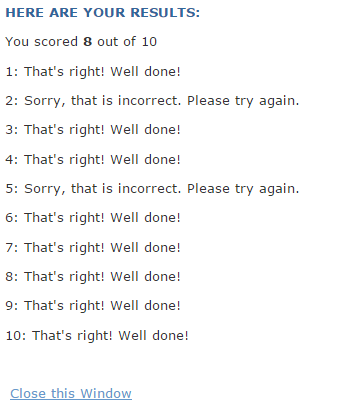Articles:
- a/an is used to modify non-specific or non-particular nouns is consideredlike an indefinite article.
A
|
An
|
singular noun beginning
with a consonant
“a boy; a car; a bike; a zoo; a dog”
|
singular noun beginning
with a vowel
“an elephant; an egg; an apple; an idiot”
|
singular noun beginning
with a consonant sound
“a user (sounds like 'yoo-zer,' begins with a consonant 'y' sound, so 'a' is used); a university; a unicycle”
|
nouns starting with
silent "h"
“an hour”
|
nouns starting with a
pronounced "h"
“a horse”
|
- The: is used before singular and plural nouns when the noun is specific or particular. The signals that the noun is definite, that it refers to a particular member of a group.
"The dog that bit me ran away." Here, we're talking about a specific dog, the dog that bit me.
"I was happy to see the policeman who saved my cat!" Here, we're talking about a particularpoliceman. Even if we don't know the policeman's name, it's still a particular policeman because it is the one who saved the cat.
"I saw the elephant at the zoo." Here, we're talking about a specific noun. Probably there is only one elephant at the zoo.

- No article: Names of languages and nationalities: Chinese, English, Spanish, Russian (unless you are referring to the population of the nation
its not used on:
- Names of sports: volleyball, hockey, baseball
- Names of academic subjects: mathematics, biology, history, computer science
(one writting lab, 2015)
- whatever: it is used to mean anything but could also mean everything for example:
Whatever you do, pay attention to the road when you are driving.
(You can do anything as long as you pay attention to the road)
(You can do anything as long as you pay attention to the road)
They say you can buy whatever you desire in Harrods, as long as you have the money.
(You can buy anything in Harrods, if you have enough money)
(You can buy anything in Harrods, if you have enough money)
- whoever: it is used to mean any person or every person and also it is used to refer to a person unknown to the speaker
Whoever broke the vase, can you please replace it?
(Any specific person who broke the vase, please replace it)
(Any specific person who broke the vase, please replace it)
Whoever goes to the shop, please don't steal anything.
(Any one or more of the people who will go to the shop, don't steal anything)
(Any one or more of the people who will go to the shop, don't steal anything)
- whenever: it used to mean anytime but also could mean everytime.
Whenever the neighbours flush the toilet, water comes through our ceiling.
(Every time they flush the toilet it happens)
(Every time they flush the toilet it happens)
Whenever she calls, the landlord is busy.
(Every time she calls the landlord, he/she is busy)
(Every time she calls the landlord, he/she is busy)

For this unit me practiced a lot in class with the activities on the book. And I have been practiced for my own in my house with activities online.
pages of the exercises:
- https://elt.oup.com/student/solutions1stedition/ad_unit_page/unit10/grammar10/exercise1?cc=us&selLanguage=en
- http://www.learnenglishfeelgood.com/mixed-english-articles1.html#
references:
- Woodward english (2015) Whoever,Whatever, Wherever. Recuperado de
http://www.grammar.cl/Notes/Whoever_Whatever_Whenever.htm
- Online Writting Lab (2015) Using Articles. Recuperado de
https://owl.english.purdue.edu/owl/resource/540/01/






No hay comentarios.:
Publicar un comentario